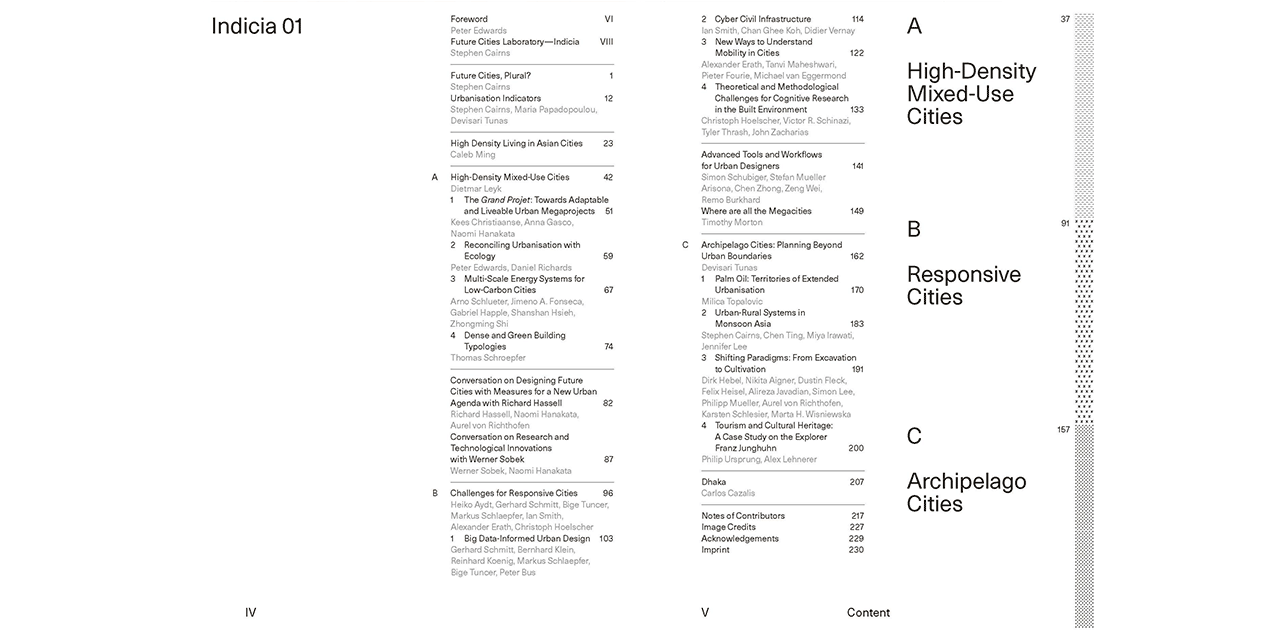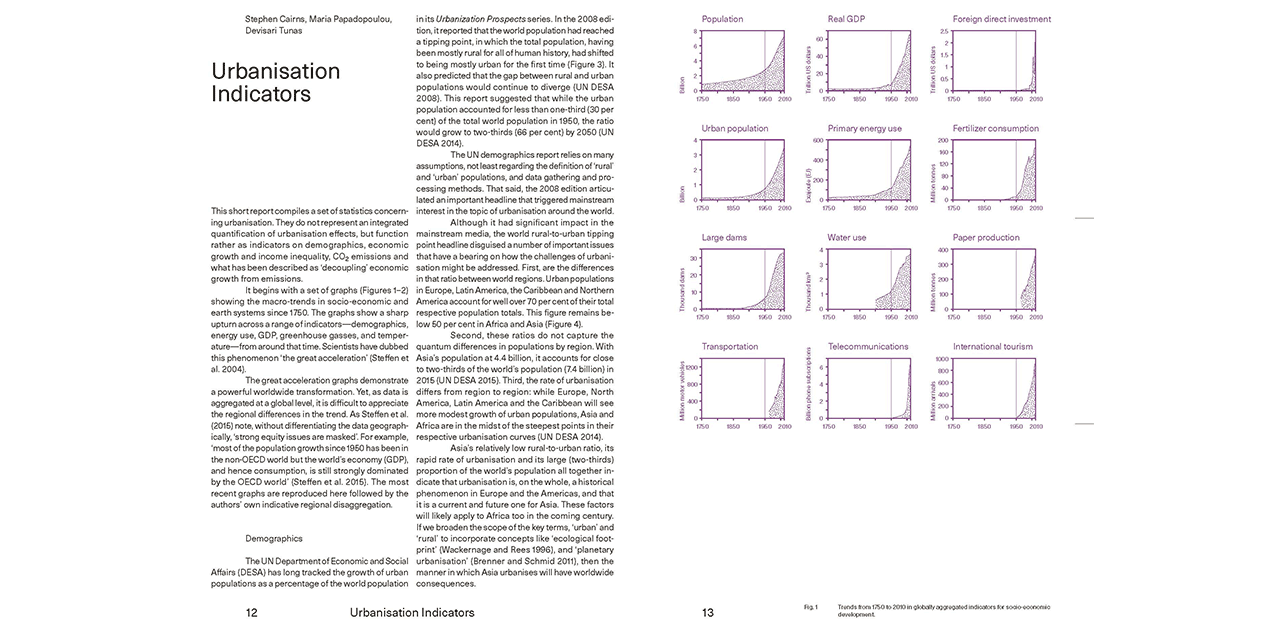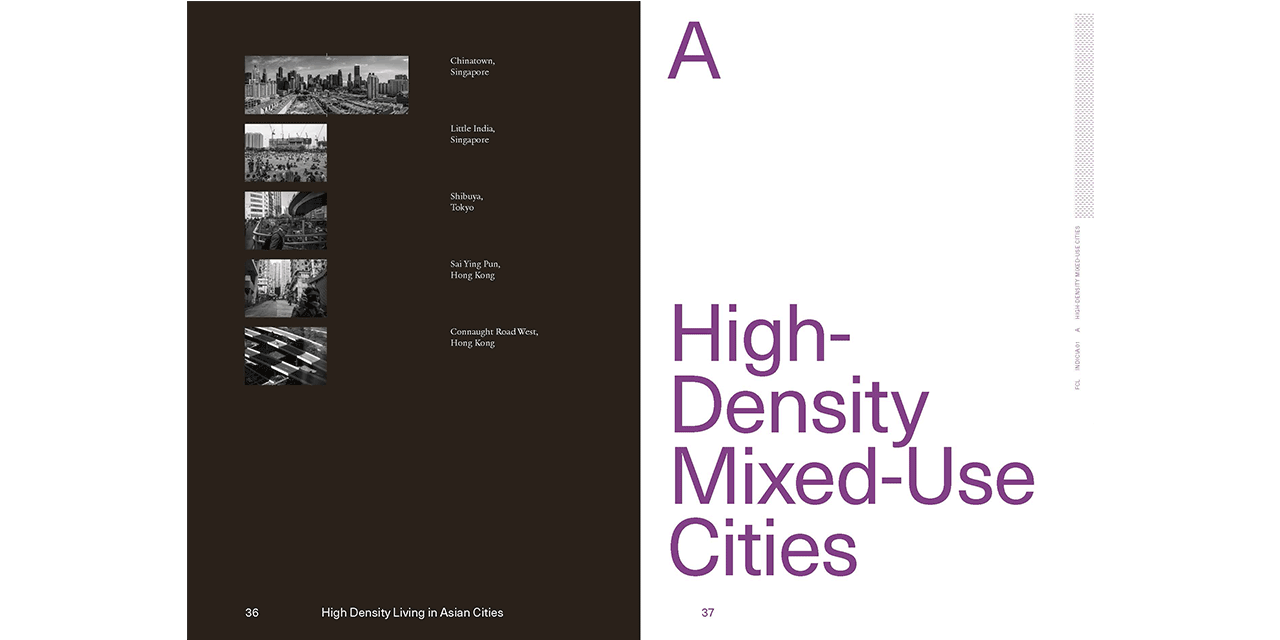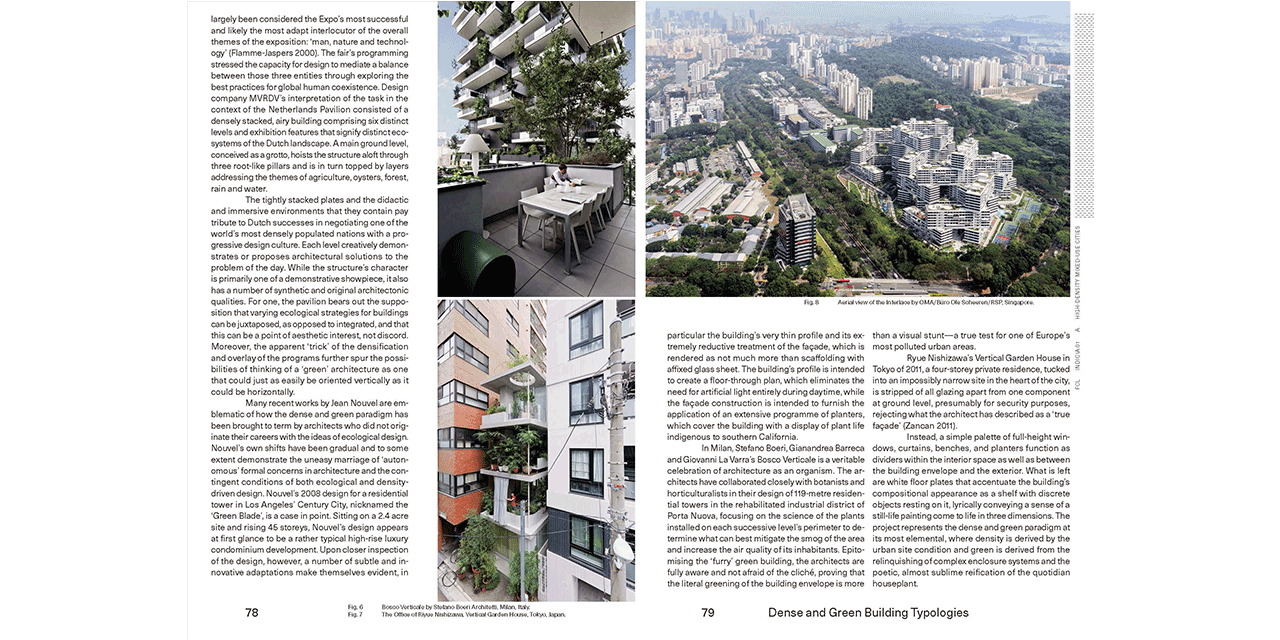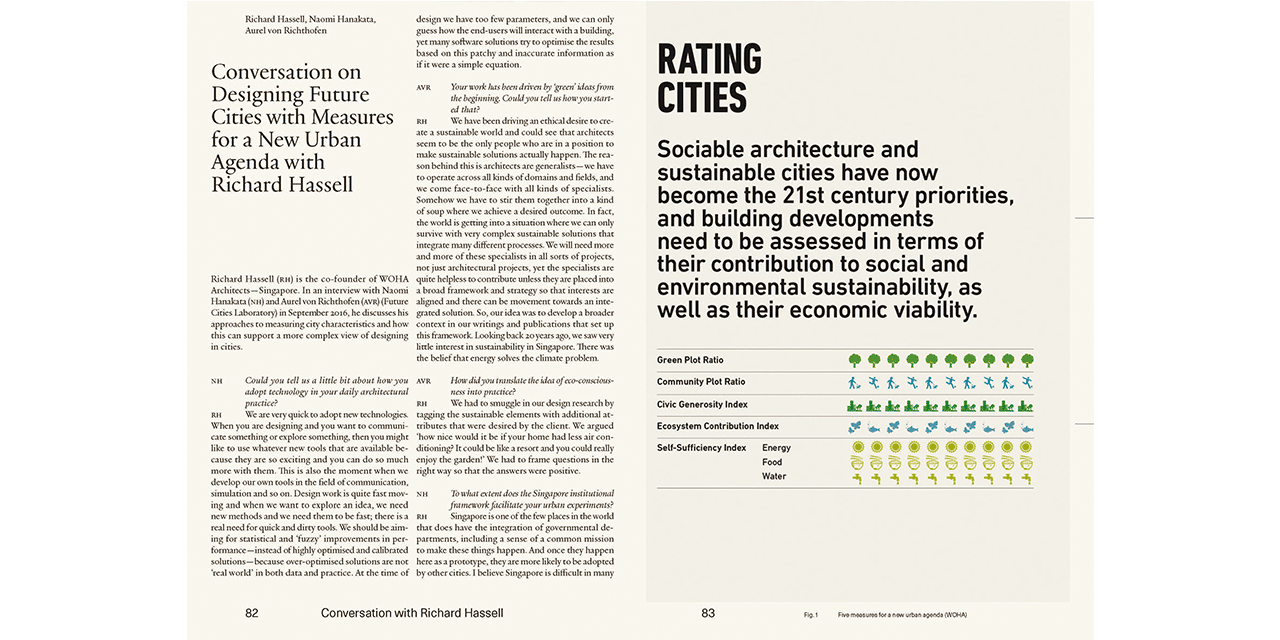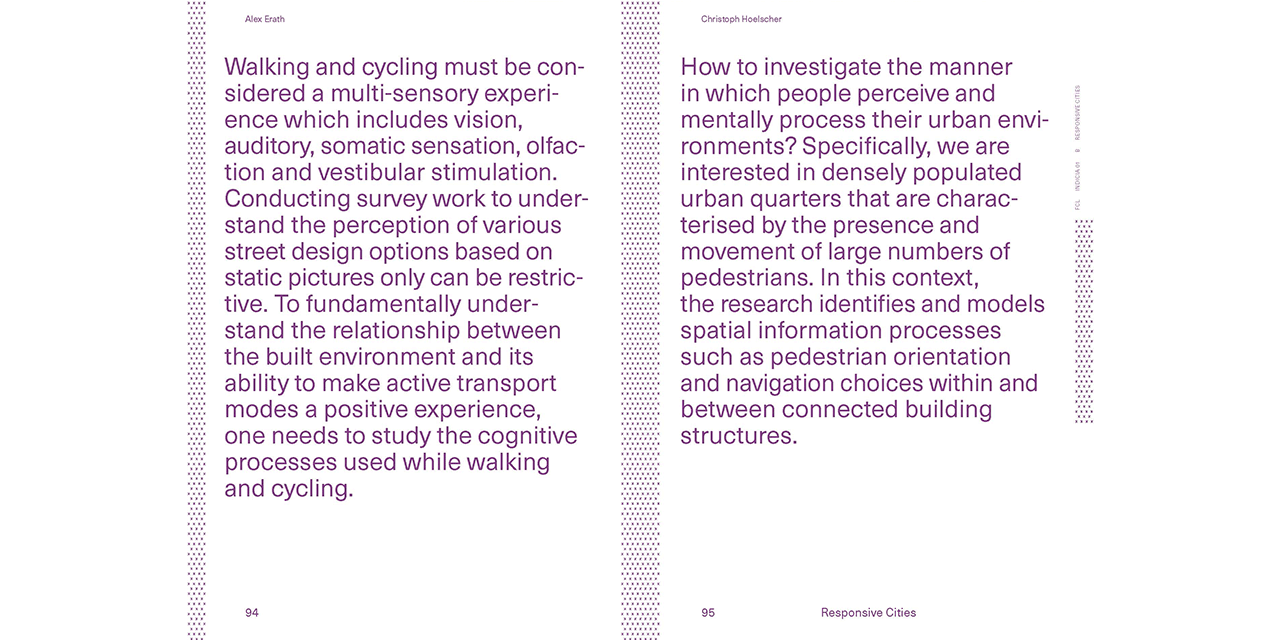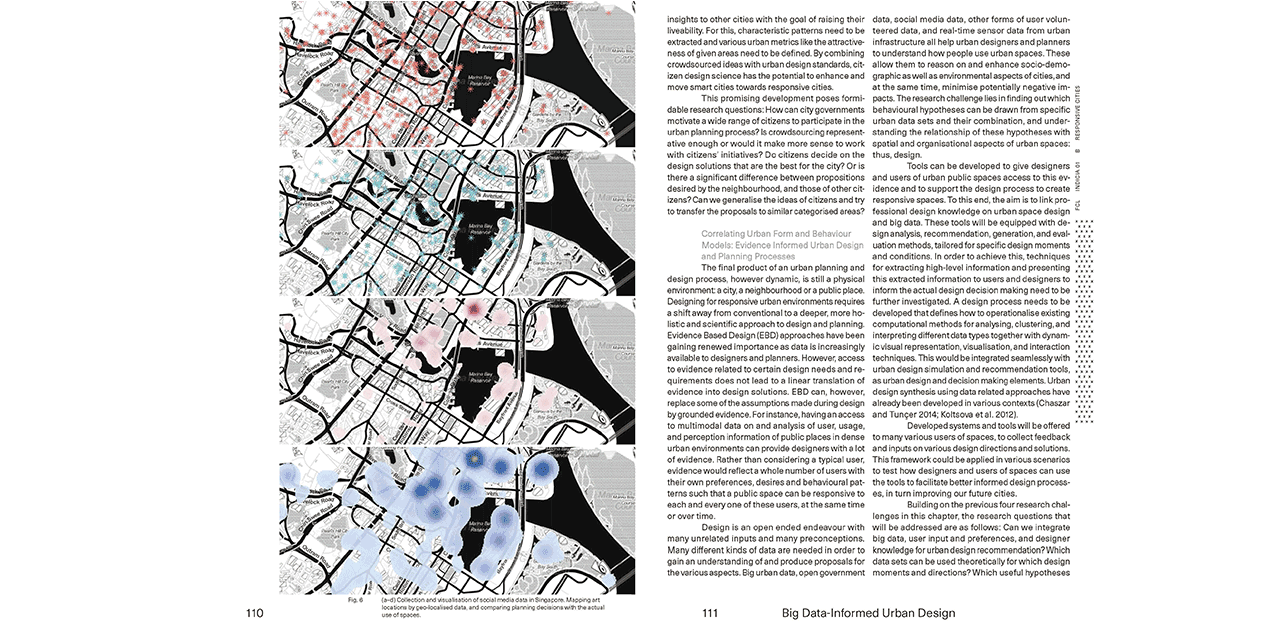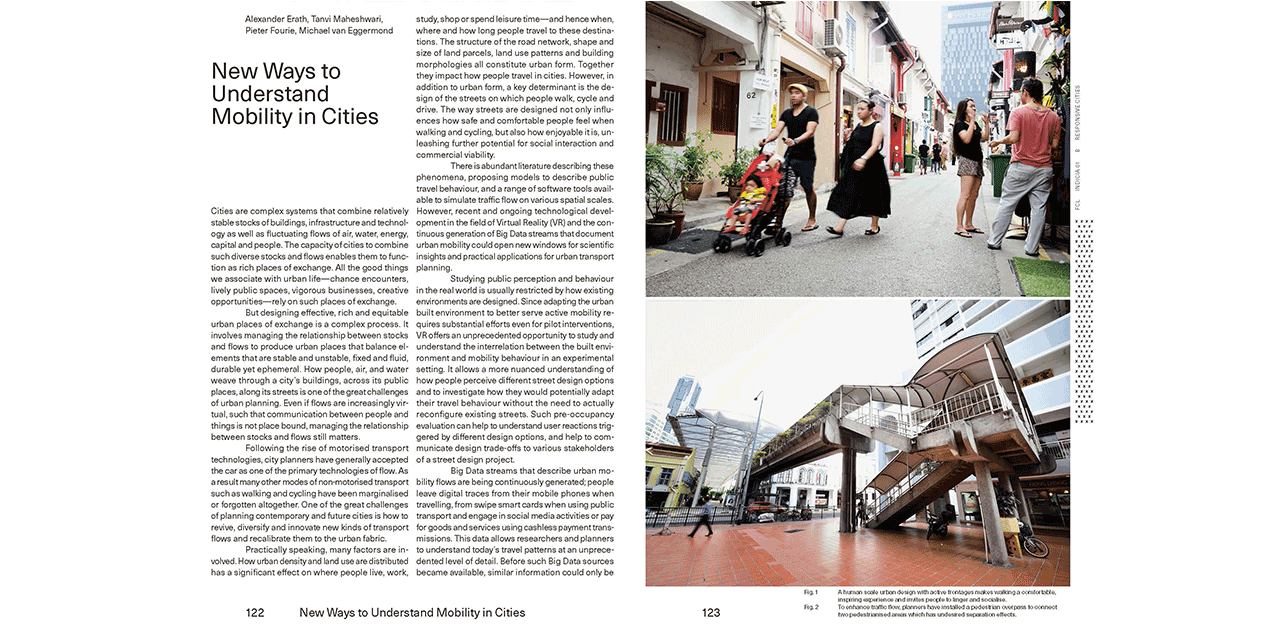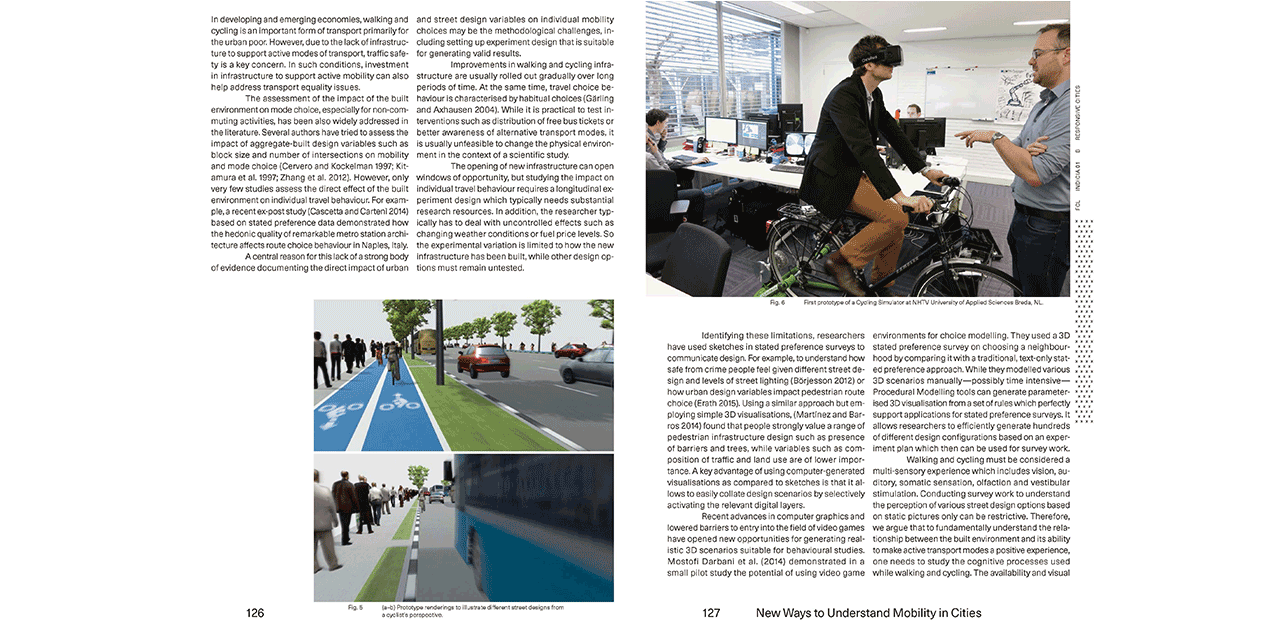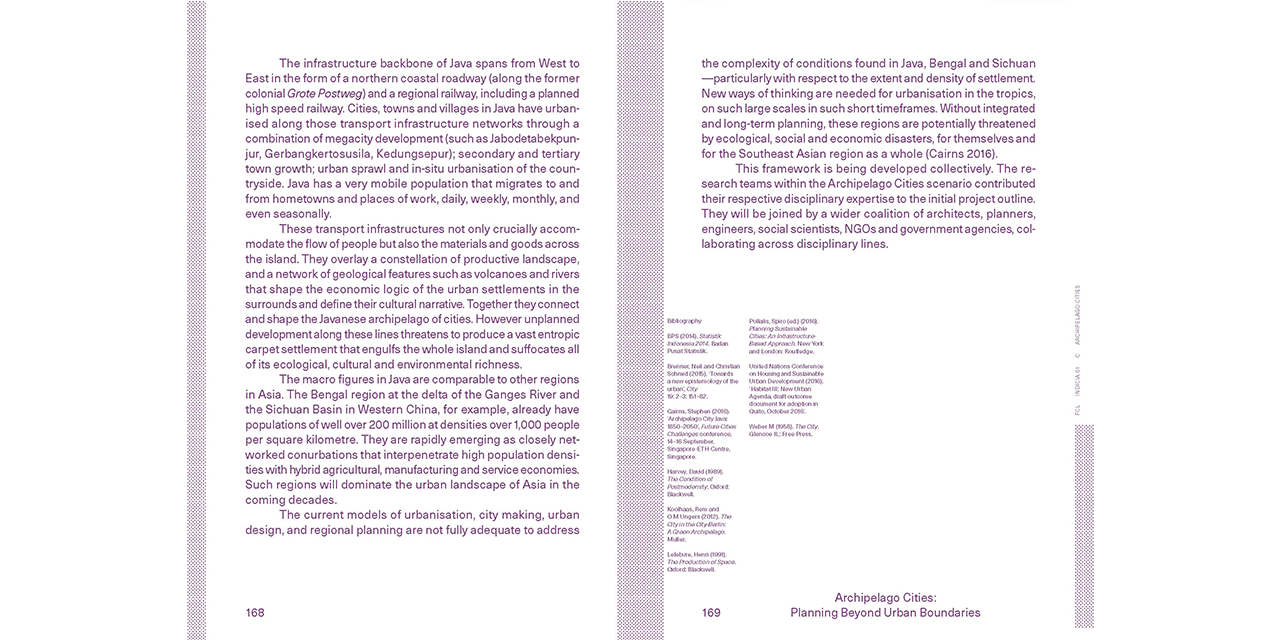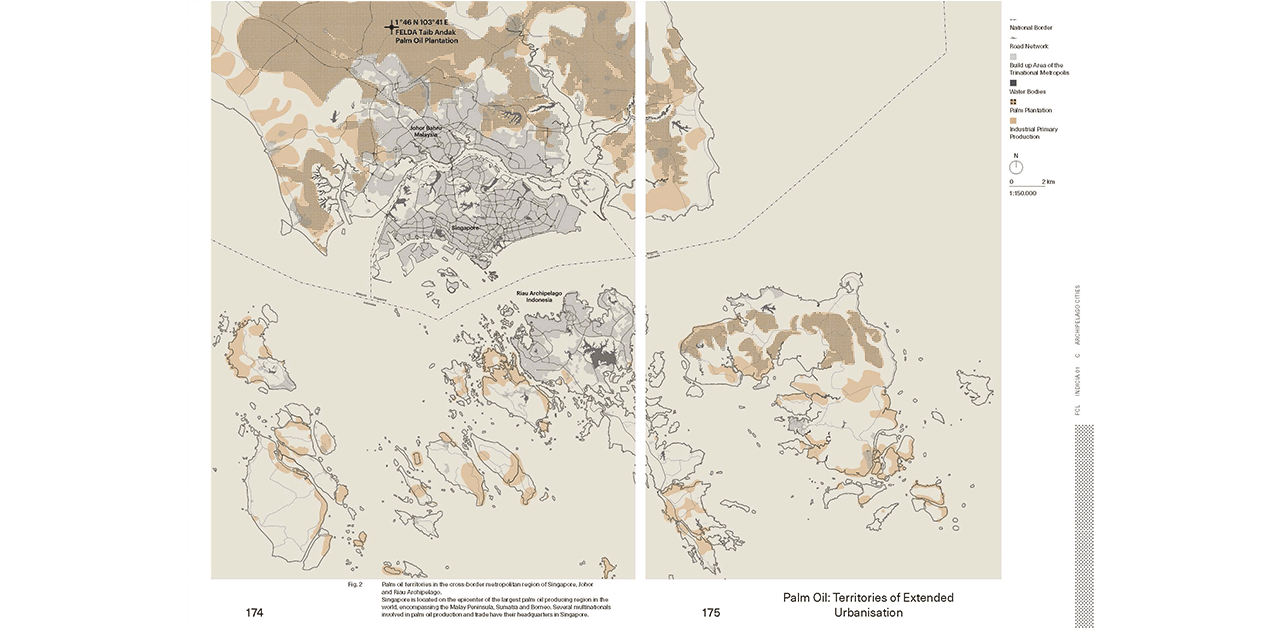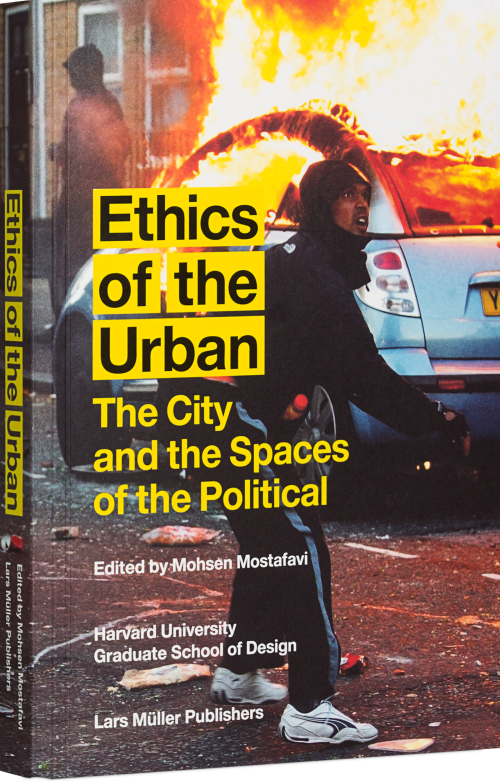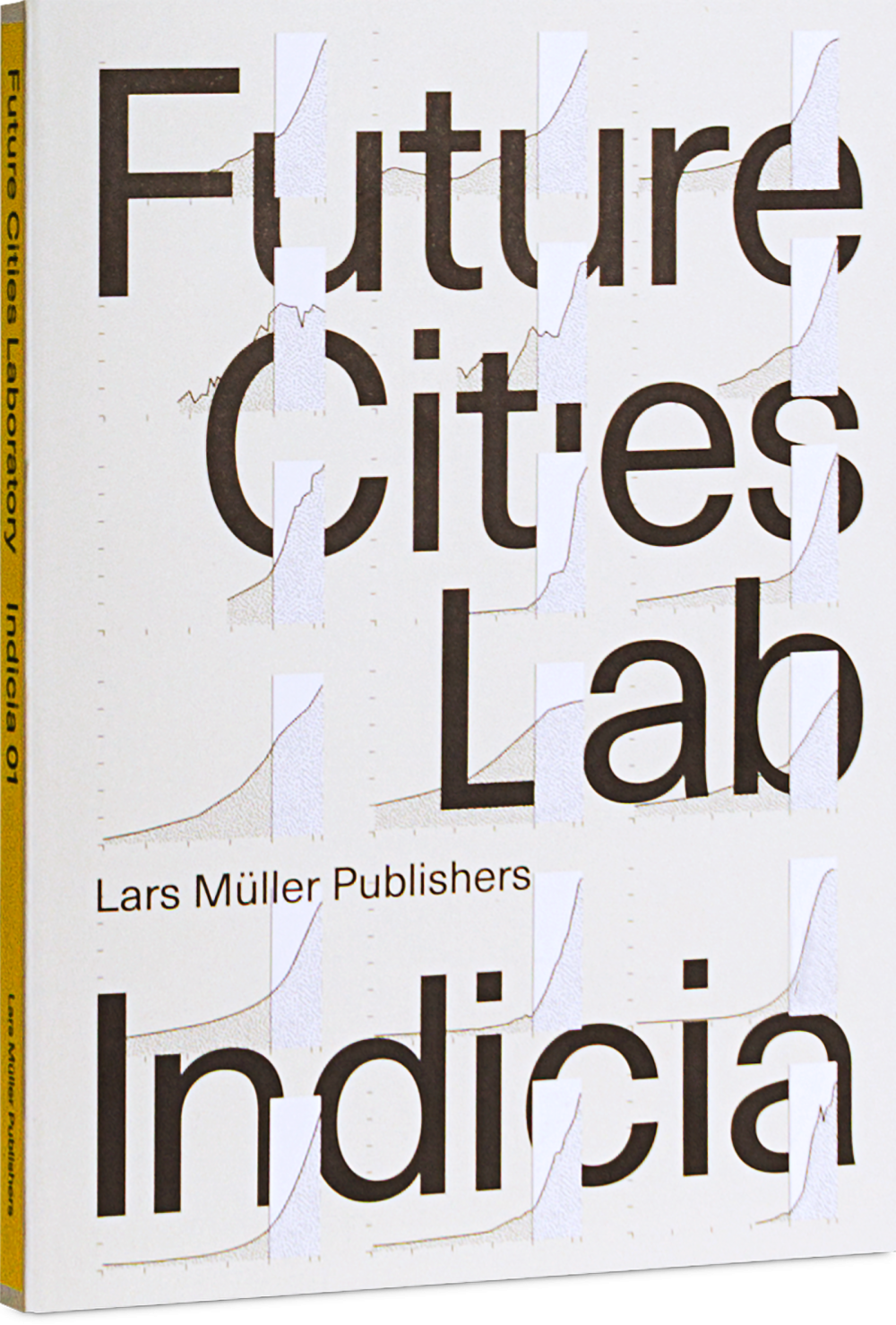
Future Cities Laboratory
Indicia 01
Future Cities Laboratory reports on the same named research program and its mission to shape sustainable future cities through science, by design, in place. It offers a global perspective on cities from the vantage point of the world's most populous and rapidly urbanizing continent: Asia, which also acts as the base of the laboratory.
This volume illustrates the richness and diversity of research at the Future Cities Laboratory (FCL). The book, the first in a series, describes new processes and types of data that are being used to understand and improve cities. New approaches pioneered by FCL and its partners offer an important method to bridge the gap between knowledge production and action, with the aim of ensuring the sustainability of future cities. To reach this goal, FCL works closely with stakeholders in government, industry and society. The program has developed many simulation tools to help practitioners visualize the social, environmental or economic consequences of particular planning decisions.
Future Cities Laboratory is an interdisciplinary research program, established by ETH Zurich and Singapore’s National Research Foundation. The program has the ambitious goal of providing the knowledge and ideas needed to make cities more sustainable. The purpose of their research is not merely to understand how cities work, but to improve the quality and lasting development of urban life by translating this understanding into practical solutions.
Future Cities Laboratory reports on the same named research program and its mission to shape sustainable future cities through science, by design, in place. It offers a global perspective on cities from the vantage point of the world's most populous and rapidly urbanizing continent: Asia, which also acts as the base of the laboratory.
This volume illustrates the richness and diversity of research at the Future Cities Laboratory (FCL). The book, the first in a series, describes new processes and types of data that are being used to understand and improve cities. New approaches pioneered by FCL and its partners offer an important method to bridge the gap between knowledge production and action, with the aim of ensuring the sustainability of future cities. To reach this goal, FCL works closely with stakeholders in government, industry and society. The program has developed many simulation tools to help practitioners visualize the social, environmental or economic consequences of particular planning decisions.
Future Cities Laboratory is an interdisciplinary research program, established by ETH Zurich and Singapore’s National Research Foundation. The program has the ambitious goal of providing the knowledge and ideas needed to make cities more sustainable. The purpose of their research is not merely to understand how cities work, but to improve the quality and lasting development of urban life by translating this understanding into practical solutions.
